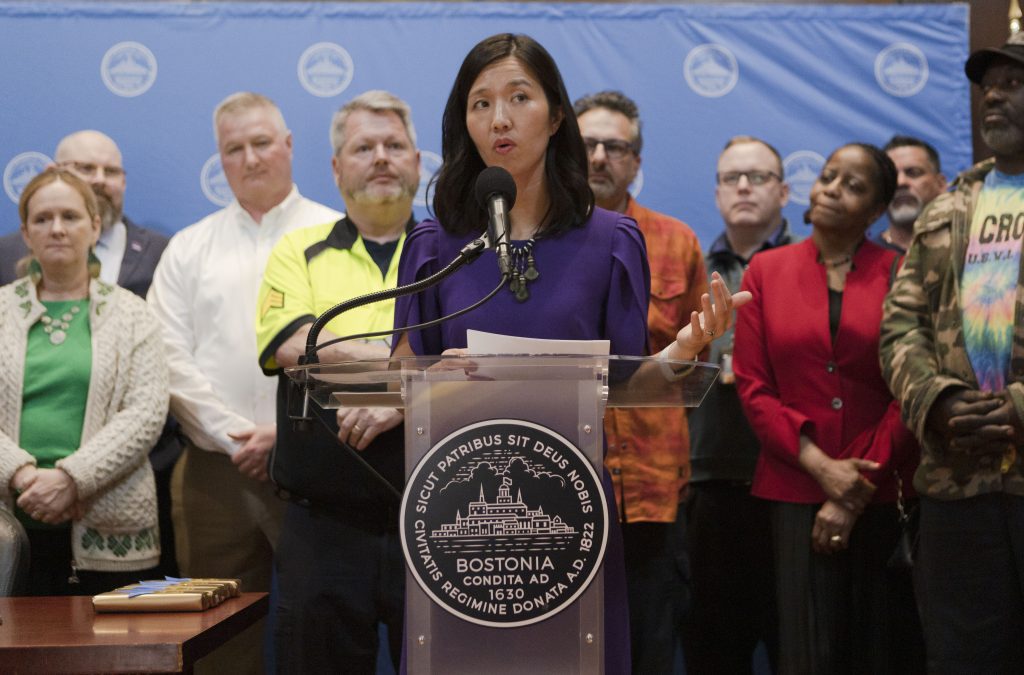Boston Mayor Michelle Wu and the city’s two largest non-military unions signed a four-year deal on Thursday that intentionally gives larger raises to the lowest-paid city workers.
The city’s recent deal with AFSCME Council 93 and SEIU Local 888, representing over 1,700 employees across 28 departments, includes raises of 10-15% over four years, depending on individual income.
In addition to the annual 2% cost-of-living increase, every employee, regardless of their income, gets a yearly base wage increase of $500. This results in a bigger raise for lower-paid workers, including those making under $60,000, who make up about half of each union’s workforce, according to the mayor.
“Completing two major contracts is a reason to celebrate in itself,” Wu said at a City Hall press conference as she signed the new collective bargaining agreements. “But today is also significant because these contracts set a new precedent for our city.”
“We aimed to raise the minimum pay for our workforce, especially the workers earning $60,000 or less, which encompasses about 50% of each union's members,” Wu said, explaining that this was done “to achieve the goal of providing every worker with a fair, respectable, and livable wage.”
For the first time, the agreement allows employees to take sick and bereavement leave during their six-month trial period, which drew applause when announced by the mayor.
It also offers the choice of a four-day work week as long as employees work the same hours they would over five days, a condition focused on their “mental-health” and “work-life-balance” priorities.
The two unions represent city employees in departments such as public works, parks and recreation, inspectional services, centers for youth and families, the registry and elections, among others.
“We negotiated a fair and equitable contract across the board,” said Ed Nastari, director of field service and organizing for AFSCME Council 93.
Thomas McKeever, president of SEIU Local 888, called the agreement a “historic” one that brings the lowest-paid city workers “closer to a living wage.”
Chris “Tiger” Stockbridge, AFSCME president, stated that while the union did not get everything it wanted and had to make some concessions, the contract and the administration’s decision to reinstate joint-labor management meetings shows that Wu, who he referred to as the “best labor mayor in 30 years,” is “listening to us.”
He commented on how quickly the agreement was reached after the previous contract expired last October.
“Dignity and respect — that’s what these jobs are about,” Stockbridge said. “The money’s great, too, don’t get me wrong, but you want a job that you want to come to every day, and I appreciate you getting us back to where we need to be. We’ve still got a ways to go, but we’re getting there every day.”









